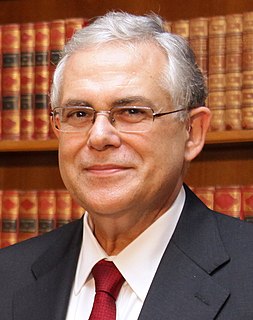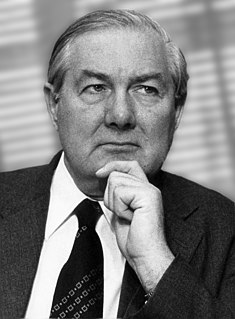A Quote by Milton Friedman
All of the progress that the US has made over the last couple of centuries has come from unemployment. It has come from figuring out how to produce more goods with fewer workers, thereby releasing labor to be more productive in other areas. It has never come about through permanent unemployment, but temporary unemployment, in the process of shifting people from one area to another.
Related Quotes
In working on any one problem, such as higher minimum wages, so many other issues come into play, such as some businesses possibly closing down, thus creating fewer jobs and more unemployment and incentivizing companies to import more goods from abroad, which leads to even less employment at home, and so on.
What we're talking about is the price of goods, all goods, in terms of money. That has nothing to do with unemployment, except for the fact that you get fewer goods. And when you have more money and fewer goods, the amount of dollars per good goes up. It goes up because there are fewer goods and it goes up because there is more money.
Free migration within Europe means that countries that have done a better job at reducing unemployment will predictably end up with more than their fair share of refugees. Workers in these countries bear the cost in depressed wages and higher unemployment, while employers benefit from cheaper labor.
I've heard the argument that unemployment benefits somehow act as a disincentive to the long-term unemployed when it comes to looking for work, but the opposite is true. Unemployment Insurance serves as a powerful incentive for people to keep searching for jobs, rather than drop out of the labor force altogether.
In the name of compassion, Obama advocates seemingly endless extensions of unemployment benefits because his economic theology holds that by paying people not to work, you will create jobs. It not only fails to factor in the obvious deterrent that extended benefits have on their recipients but also falsely assumes that transferring money from one pocket to the next generates more spending - by some mythical multiple factor, no less. Back on planet Earth, studies reveal that extending unemployment benefits results in more unemployment.
When we reject unemployment as an economic instrument as we do and when we reject also superficial remedies, as socialists must, then we must ask ourselves unflinchingly what is the cause of high unemployment. Quite simply and unequivocally, it is caused by paying ourselves more than the value of what we produce. There are no scapegoats.
































